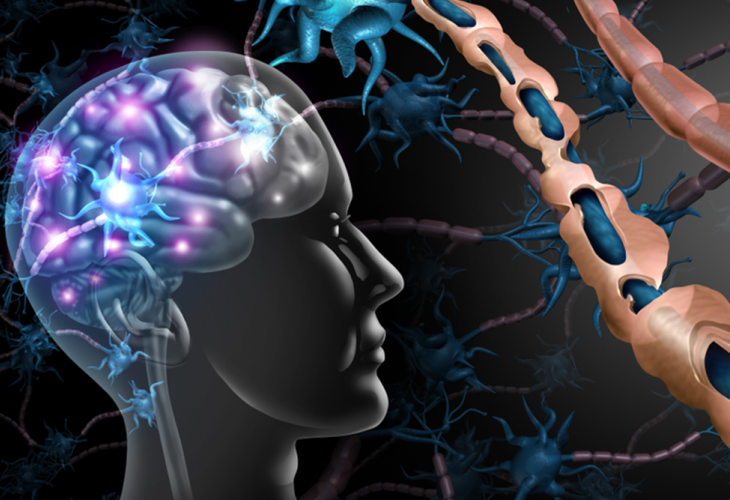Understanding Multiple Sclerosis: Symptoms, Treatments, and Daily Management
Multiple sclerosis is a chronic autoimmune disease affecting the central nervous system. Dive into the crucial details about its causes, various symptoms, possible treatments, and daily strategies to improve the quality of life for those affected.
 (Photo: shutterstock)
(Photo: shutterstock)Multiple Sclerosis (MS) is a chronic autoimmune disease that impacts the central nervous system. It damages the myelin, the protective layer surrounding nerve cells, leading to disrupted nerve communication in the body. The symptoms of MS vary from person to person, making the disease unpredictable and challenging to manage. Let's explore the causes of MS, its diverse symptoms, possible treatments, and everyday coping techniques.
Causes of Multiple Sclerosis
The exact cause of MS remains unknown, but it is recognized as an autoimmune disease where the immune system attacks myelin. Several factors are considered contributors to the disease:
Genetic Factors
Research shows a significant genetic component in the development of MS. People with first-degree relatives who have the disease are at higher risk of developing it themselves. However, MS is not considered a fully hereditary disease, but rather linked to a combination of genetic and environmental factors.
Environmental Factors
There are several environmental factors that increase the risk of MS:
* Infections: Viral infections, such as the Epstein-Barr virus (EBV), have been associated with the emergence of the disease. The hypothesis is that these infections activate the immune system and cause an abnormal immune response.
* Vitamin D Deficiency: Low levels of vitamin D have been linked to an increased risk of developing MS. Vitamin D influences the immune system and is essential for maintaining its proper function.
* Smoking: Studies have shown that smoking increases the risk of developing MS and worsens the progression of the disease.
Geographical Factors
MS is more common in geographical regions farther from the equator, such as Northern Europe and North America. It is hypothesized that sun exposure and vitamin D deficiency in these areas affect the risk of the disease.
Symptoms of Multiple Sclerosis
The symptoms of MS vary in severity and location in the body. They can appear and disappear at different times and affect various body systems. Here are some common symptoms:
Neurological Symptoms
* Weakness and Fatigue: General weakness and persistent fatigue are common MS symptoms. Fatigue can be severe and impact daily functioning.
* Sensory Issues: Tingling, "pins and needles," or numbness in different areas of the body are frequent. These sensations may appear on the face, limbs, or back.
* Vision Problems: Blurred vision, double vision, or partial vision loss are common symptoms. Sometimes, the disease affects the optic nerve, causing optic neuritis.
* Walking and Balance Difficulties: Movement difficulties, loss of balance, and poor coordination are common in MS.
Additional Physical Symptoms
* Pain and Spasms: Some patients experience chronic pain and muscle spasms.
* Bladder and Bowel Issues: Problems with bladder and bowel control are common symptoms and can lead to discomfort and embarrassment.
Treatment Options for Multiple Sclerosis
There is currently no cure for MS, but there are several treatments aimed at easing symptoms and slowing the disease's progression:
Medication
Immunosuppressive Drugs: Medications used to suppress immune system activity and reduce flare-ups.
* Corticosteroids: Steroids are given to treat acute flare-ups and reduce inflammation.
* Symptom-Specific Drugs: There are medications designed to ease specific symptoms like pain, muscle spasms, fatigue, and depression.
Physical Therapy and Complementary Treatments
* Physical Therapy: Physical therapy can help improve movement, strength, and coordination. Daily exercises and moderate physical activity can ease symptoms and improve quality of life.
* Complementary Therapies: Massage therapies can relieve symptoms and reduce tension.
Daily Management of Multiple Sclerosis
Managing daily life with MS requires awareness and measures to ease symptoms and improve quality of life:
Managing Fatigue
* Adequate Rest: It's important to get enough quality sleep at night and rest during the day as needed.
* Moderate Physical Activity: Regular physical activity can ease fatigue and boost energy. Consulting a physical therapist about suitable exercises is recommended.
Proper Nutrition
* Balanced Diet: A diet rich in fruits, vegetables, proteins, and whole grains can improve overall health and support the immune system.
* Avoid Processed Foods: It is recommended to avoid consuming processed foods and saturated fats.
Social and Emotional Support
* Family and Social Support: Sharing with family and friends about the health condition and receiving emotional support can ease the coping process.
* Psychological Counseling: Mental health therapy can help in dealing with the stress, anxiety, and depression associated with the disease.
Multiple sclerosis is a complex and challenging disease that requires daily treatment and management. Understanding its causes, symptoms, and treatment options can help improve the quality of life for those affected by the disease. Through appropriate treatment, social and emotional support, and lifestyle changes, it is possible to cope with the symptoms and lead full and meaningful lives.
Living with Multiple Sclerosis: All You Need to Know
Open: Efrat Barzel in Discussion about Coping with Multiple Sclerosis

